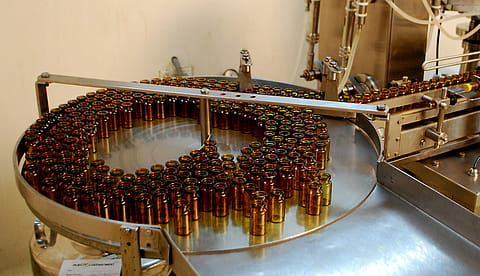Covid vaccines help Pfizer, BioNTech, Sinovac, Moderna topple powerhouses GSK, Merck, Sanofi
While Pfizer became the largest seller of vaccines in 2021, the second and third spots were taken by BioNTech and Sinovec.

While Covid-19 is staging a comeback in countries like China, Japan, and the U.S., - the pandemic which ravaged globally for almost two years - has changed even the vaccine business globally. If GlaxoSmithKline, Merck & Co, and Sanofi were undisputed leaders of the vaccine business globally until 2020, now they have been overtaken by companies like Pfizer, BioNTech, Sinovac, and Moderna.
On the domestic front, the pandemic helped Serum Institute of India to become a multi-billion dollar company. Its revenues increased from ₹5,446 crore in 2019-20 to ₹7,201 crore in 2020-21 and to a whopping ₹25,645 crore in 2021-22. Another Covid-19 vaccine maker Bharat Biotech's revenues in 2020-21 were ₹1,376.82 crore, growing from ₹956.65 crore in the previous fiscal year.
Globally, while Pfizer became the largest seller of vaccines in 2021, the second spot was for its German partner BioNTech which co-developed an m-RNA technology Covid-19 vaccine. The third biggest seller is Chinese company Sinovec, followed by U.S.-based Moderna, which was only a biotech research company with negligible revenues before Covid-19. While the pre-Covid era leader Merck & Co managed 5th rank, the other former leaders GSK and Sanofi were pushed down to 6th and 7th positions. All these three multinational drug companies did not develop their own Covid-19 vaccines. Another Chinese company, Chongqing Zhifei Biological Products ranks 8th among top vaccines sellers of 2021, followed by AstraZeneca, and Johnson & Johnson.
Before Covid-19, around 90% of Pfizer's global vaccine business was from the pneumococcal vaccine Prevnar-19, which generated $5.85 billion in 2019. Until then, it was also the largest selling vaccine in the world. In December 2020, the US Food and Drug Administration (FDA) gave emergency use authorisation (EUA) for Pfizer-BioNTech combine's Covid-19 vaccine Comirnaty. In a year Pfizer sold 3 billion doses and plans were to make 4 billion doses in 2022. As a result, Pfizer's 2021 vaccine revenues were $42.63 billion and $25.40 billion in the first- half of 2022.
Pfizer's German partner BioNTech, which initially developed the messenger RNA vaccine, generated vaccine revenues of $22.48 billion in 2021 and $10.3 billion in the first half of 2022. Covid-19 vaccine Comirnaty is the only commercialised vaccine of BioNTech, which hopes to earn about 13 -17 billion euros in 2022.
China’s Sinovac was one of the first to develop a Covid-19 vaccine using the conventional inactivated vaccine technology. Its CoronaVac was bought by many countries and the firm claims to have generated revenues of $19.37 billion in 2021, almost four times more than a year ago.
Like BioNTech, U.S. based Moderna was a struggling m-RNA vaccine research company in the bio-pharmaceutical world before Covid-19. With nearly $10 billion in grants and advance bookings, Moderna came out with its m-RNA Covid-19 vaccine with sales of $17.67 billion in 2021 and $10.82 billion in the first half of 2022.
Merck managed a 5th position in global vaccine sales with $9.69 billion vaccine revenues in 2021, but that was mainly powered by HPV (human papillomavirus) vaccine Gardasil, which had $5.7 billion in sales in 2021. GSK ranks next with $9.32 billion in sales in 2021, mainly powered by its traditional flu and meningitis vaccine businesses. Same is the case with French drug major Sanofi, which had $7.45 billion revenues in 2021. Both Sanofi and GSK had come together to develop a Covid-19 vaccine, but they could not come out with the final product. Chinese company Chongqing Zhifei Biological Products managed vaccine revenues of $4.75 billion in 2021, but that was mainly from its partnership with Merck for marketing Gardasil.
While Covid-19 helped AstraZeneca get vaccine revenues of $3.98 billion and $1.6 billion in the first half of 2022, another MNC Johnson & Johnson got vaccine revenues of $2.39 billion and $1 billion in the first half of 2022. Both companies had to face hurdles and delays in a smooth Covid-19 vaccine rollout.